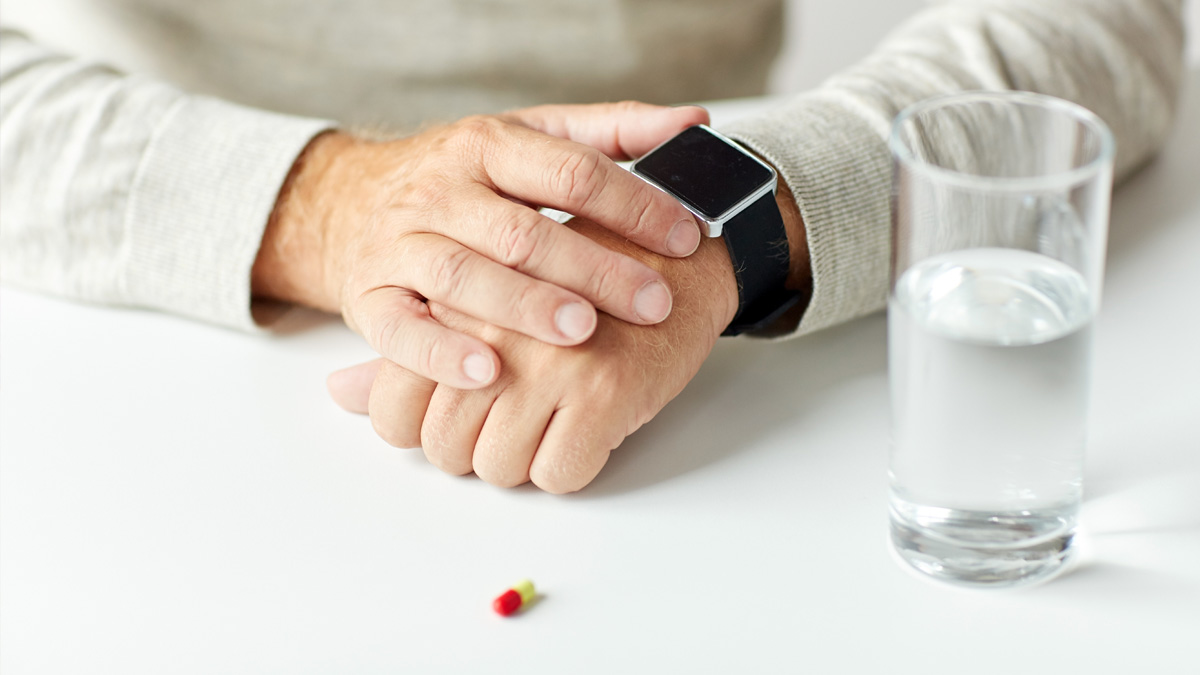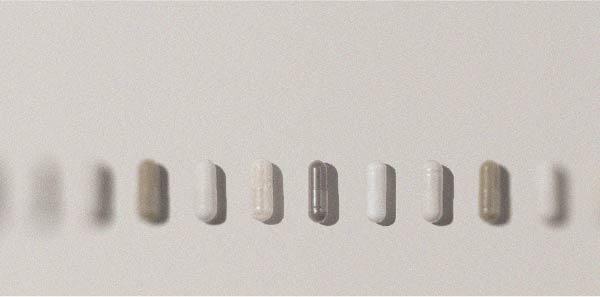At what time of day should I take my multivitamins?
You’re taking a supplement such as Daily 3 and want to know the perfect time to take it for maximum absorption of all its nutrients? SuperSmart has the answer.

To get the maximum benefit from multivitamin supplements, it’s best to take them with food, particularly the highest-fat meals of the day. If your breakfast contains sufficient fat (butter, cheese, ham, eggs …), it will enable your body to correctly absorb fat-soluble vitamins, those that only release their compounds in fats – vitamins A, D, E and K.
Taking your supplements with a meal also reduces the risk of stomach ache or nausea which can occur when supplementing with iron or zinc, in particular.
What if I’m also taking other supplements?
You should take them at a different time: if, for example, you’re taking a significant amount of calcium, it can interfere with the absorption of the magnesium, iron, copper and zinc in your multivitamin supplement. Similarly, if you’re taking vitamins A, D, E and K, this can reduce the efficacy of these same vitamins when they form part of multiple supplements.
Finally, if you’re supplementing with vitamin B12, take it at least six hours apart from any other supplement: it’s better to take a smaller dose twice a day than one large dose.
Which multivitamin supplement should I choose?
As a general rule, it’s best to choose a multivitamin complex which provides the recommended daily amount for each of its compounds: taking more is at best pointless and at worst dangerous in the case of certain substances. One of the best-known is Daily 3: it’s unquestionably the most comprehensive, one-capsule-a-day, multivitamin available, offering doses and forms that are optimal for the body. It contains no less than 42 exceptional ingredients!
It’s always a good idea to discuss supplementation with your pharmacist: he or she can advise you on the right dose for your needs, and on any potential interactions with medication you might be taking.
Keywords
15 Hours
great products and prices
great products and prices
Marie
6 Days
Easy to navigate site
Easy to navigate site, had what I was searching for, good price. easy order-check out
James Tucker
12 Days
My skin is clearing up nicely!
Pretty good for my skin so far.
Christian
14 Days
The new packaging is excellent
The new packaging is excellent - finally! No more squashed boxes and torn envelopes.
GORAN
15 Days
Great Product
Great Product
Larry Garrett
19 Days
Quick shipping
Quick shipping; good price. No issues!
Mary McCarty
21 Days
Thr product is very good and is helping…
Thr product is very good and is helping me on my health. Then is always on time
LUGO Luz
23 Days
Buying was fine
Buying was fine. I had problems with the website not recognizing my login info, and had to call to get it fixed. Other than that, everything was good.
David S. Clark
24 Days
Your super maca and super ginseng are…phenomenal
Your super maca and super ginseng are phenomenal supplements that compliment each other when taking them together. Fantastic feeling of well-being and lots of mid day energy without the crash.
Keith Mason
26 Days
I have had amazing results with every…
I have had amazing results with every supplement I've purchased. I am extremely satisfied with this company
kirstin Torres
27 Days
Fine products
Fine products . They are on the leading edge of online supplements. The only issue -so far-is they sometime run out of subscription items.
Jason Argos
29 Days
The ordering process is very user…
The ordering process is very user friendly and the products always come in a timely manner.
CARTER Rhonda
30 Days
The price for Dr
The price for Dr. Pero's AC-11 is reasonable and in line with his views. (my former colleague). Keep it pure.
CAMPBELL Clayton
33 Days
Right on every time.
Right on every time.
Arthur Nicholas
36 Days
They are cheaper than everyone else and…
They are cheaper than everyone else and the shipping was fast. Great company.
Patricia Adams




